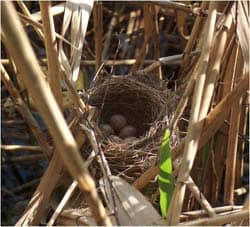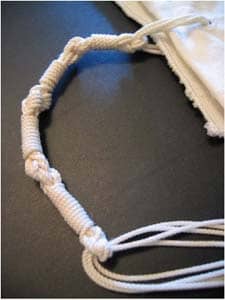I would say we should move on to something lighter but the next section of this parsha, Deuteronomy 21:22-23 is about the body of a man who was executed by the community and impaled. It says here that the body was not to remain impaled overnight because that sight is an affront to G-d (and I would say, to anyone who had to walk past it).
Here we go, something a bit nicer. Deuteronomy 22:1-4 is about lost and found. If you happened upon anything lost (animal or clothing or implement), you could not ignore it. The finder had to take it back to the owner. What if the owner didn't live nearby or the finder did not know to whom it belonged? Well then the finder was to hold onto it until the owner could claim it. The last part here mentions an animal that has fallen. In this case, too, a person could not ignore it; rather they were required to help the owner lift it up.
 Deuteronomy 22:5 is often quoted because it tells us that a women is not allowed to wear men's clothing and a man is not allowed to wear women's apparel. Well, that has become increasingly hard to define. Many Orthodox groups interpret that to mean the women wear dresses and skirts while the men wear pants. However, what about slacks made for women or a kilt, a skirt made for men. The debate rages on.
Deuteronomy 22:5 is often quoted because it tells us that a women is not allowed to wear men's clothing and a man is not allowed to wear women's apparel. Well, that has become increasingly hard to define. Many Orthodox groups interpret that to mean the women wear dresses and skirts while the men wear pants. However, what about slacks made for women or a kilt, a skirt made for men. The debate rages on.
The next part is an interesting allegory that could rarely find literal execution. If you are hiking in the woods and you are hungry and you come across a bird's nest, what are you allowed to do? You may eat the eggs of the nest or the little baby bird but first you must shoo away the mother. Interesting, why must you shoo away the mother? Well for one, if you are about to eat her young she may attack you to protect them but also, a mother should not see her young killed. Not only that but you should not eat the mother and leave the young as they will surely not survive. The mother could mate again and have more babies but the babies and eggs left unattended would have no chance. And eating them both would wipe out that entire family. This section points out that even in the times we must do things that may not be fun for us, we must do them with compassion and thought. No endeavor should be undertaken without thought for everyone involved.
The next few are little bites of details. If you build a house, it had to have a parapet, railing, or balcony so people can't fall off of it. If you plant a vineyard, only one seed was to be used; it is not multi-purpose land. You can't plow with a large ox and small donkey together (the poor donkey would suffer). You can't wear clothing that combines wool and linen. And you were to put tzitzit on the four corners of your clothing.
 After that rapid fire of mitzvot (commandments, remember?), we come to some marriage and sexual laws. The first of these is in the case that a man married a woman but then decided he didn't like her, so her accuses her of not being a virgin when they were married. Deuteronomy 22:13-19 tells us that her parents were to (somehow) produce the cloth with the evidence that she was a virgin before the wedding night and show it to the town's elders; then the husband was to be flogged and fined 100 shekels (a monetary unit also used in modern-day Israel) to be paid to his wife's father. She would remain his wife but he lost the right to divorce her.
After that rapid fire of mitzvot (commandments, remember?), we come to some marriage and sexual laws. The first of these is in the case that a man married a woman but then decided he didn't like her, so her accuses her of not being a virgin when they were married. Deuteronomy 22:13-19 tells us that her parents were to (somehow) produce the cloth with the evidence that she was a virgin before the wedding night and show it to the town's elders; then the husband was to be flogged and fined 100 shekels (a monetary unit also used in modern-day Israel) to be paid to his wife's father. She would remain his wife but he lost the right to divorce her.
Now if she were found to not have been a virgin, she would be brought to her parent's home and stoned to death. It seems rather disturbing, but at that time, that was a contractual breech. The next is a law about adultery. If a man slept with another man's wife, both were to be put to death. Then if a man slept with a virgin who was not married but rather was engaged, then they both were put to death. Why? Because the girl did not cry for help and the man took another man's wife. But if he slept with her by force, i.e., rape, in a place where people could not hear her, only he was to die. If a man slept with a virgin who was not betrothed then he was to pay the girl's father 50 shekels, they were to be married, and he had no rights to divorce her. Lastly, a man could not marry his father's former wife.
Clearly, these rules may have made sense in a society 3000 years ago with a tribe of people who were trying to build themselves up; however, 2000 years ago it was already outdated and we had laws in place for the protection of women. Rarely in Judaism can you only look at one verse in the Torah to learn all the intricacies of the law. Nowhere in the world could you find a community 3000 years ago where women were regarded as more than mere chattel. However, Judaism was one of the first groups to have protective laws and rights for women. The Talmud codified, softened, and made more humane these laws that were the table of contents and basic scout guide for developing a society.




